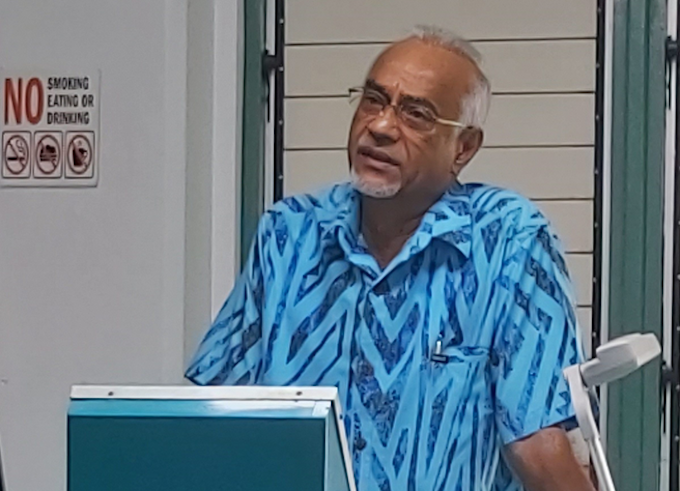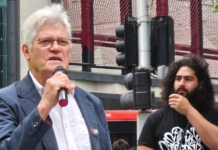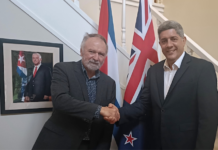
By Sheldon Chanel in Suva
Fiji’s Suva foreshore has been under “enormous” pressure from decades of destructive practices with little to no public awareness about the various afflictions, says prominent academic professor Vijay Naidu.
The problems have been exacerbated by no sustained public awareness campaign, absence of environmental issues in Pacific news media coverage and lack of leadership, Professor Naidu said.
Professor Naidu made the comment while delivering his keynote address at a two-day workshop this week organised by the University of the South Pacific’s journalism programme and the Earth Journalism Network (EJN).
The workshop looked at the causes and impacts of pollution in the Suva bay area and possible solutions.
“I have observed over 60 years massive changes to our foreshore including reclamation, destruction of mangrove forests, sewerage and solid waste, and the epidemic of plastic pollution,” he said.
“Fisheries in Suva Bay have been depleted enormously, and it is not safe to consume shell fish, or ‘kaikoso‘, collected here. Very sadly, there has hardly any systematic ‘fight back’!
“The public who use the water around the Suva Bay area for fishing have little or no idea about the state of the lagoon and what needs to be done to preserve such a wonderful resource for the people of Suva.
‘Need a penicillin injection’
“Some years ago, USP reported that if you fell in the waters of Suva harbour and Laucala Bay, you’d need a penicillin injection.”
The former head of the University of the South Pacific’s School of Government, Development and International Affairs was speaking as the chief guest at an environmental journalism workshop.
Professor Naidu said there was a need for greater collaboration between journalists and scientists to bring attention to these issues and to “help us begin the fightback”.
He commended the EJN for providing crucial support to Pacific journalists in the form of grants and training for stronger environmental reporting.
“The workshop is a great example of how scientists and journalists can work together for the greater good,” Professor Naidu said.
Such partnerships should make the public become more aware of the issues regarding the marine environment, and lead to stronger calls for change, Professor Naidu said.
Sheldon Chanel is the training editor for Wansolwara, USP Journalism’s student training newspaper and online publication. USP Journalism works in partnership with the Pacific Media Centre.












































